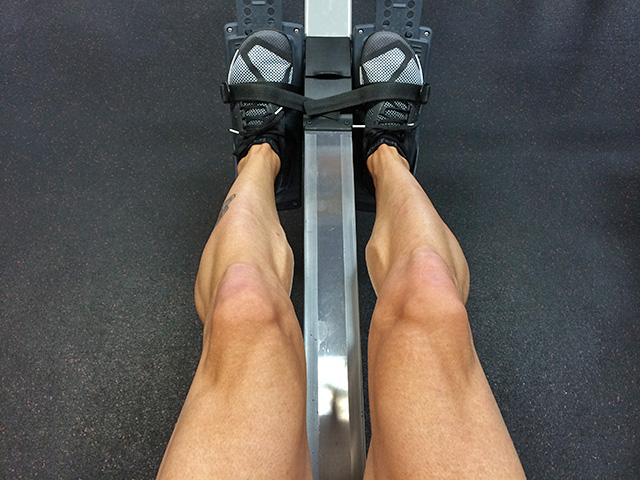This is a fitness test specific for rowers. The 500m Rowing Ergo Test is part of the eTID Talent Identification Testing Program for rowing, and their protocol is listed here. There is also a 5000m and 2000m ergo test.
test purpose: the aim of this test is to measure total body anaerobic power. The test is designed to completely exhaust all anaerobic energy production pathways
equipment required: Concept IID rowing ergometer (or equivalent). A specific drag factor needs to be set (see comments below).
pre-test: Explain the test procedures to the subject. Perform screening of health risks and obtain informed consent. Prepare forms and record basic information such as age, height, body weight, gender and test conditions. Check and calibrate the equipment as required. Perform a standard warm-up. See more details of pre-test procedures.
procedure: Ensure the correct drag factor is set correctly with the preferred display option selected on screen (see comments below). Sit ready to start the 500m test. The aim of the test is to cover the 500m in the shortest possible time, and you should be exhausted at the completion of the 500m trial. Experience has shown that better scores are achieved with an even split (same time for the first 250 as for the second 250m) rather than starting conservatively and then coming home strong, or going out too fast and not being able to complete the distance.
scoring: Record the time taken to complete the 500m in minutes and seconds and the average stroke rate.
 rowing machine
rowing machinetarget population: rowers
comments:
- Drag factors should be set at 90 for females and 100 for males. Drag factors can be checked on the Concept IID rowing ergometer by following the menu prompts on the PM3/4 interface. The drag factor display will appear in the lower right display window. When the drag factor display is present, participants are to row lightly and adjust the damper setting to select the correct drag factor. Check with local staff to ensure the drag factor is set for the particular ergometer you are using.
- Strong verbal encouragement will help the subject achieve their maximal score.
The Test in Action
- This test is part of the eTID Talent Identification Testing Program for rowing.
Similar Tests
- 2000m (2km) rowing ergometer test— aim to cover the 2km in the shortest possible time.
- 5km Rowing Ergometer Test— aim to cover the 5000m in the shortest possible time.
- Rowing Beep Test — incremental test performed on a rowing ergometer
Related Pages
- Fitness testing for rowers
- Rowing Ergometers for Fitness Testing
- About the eTID Talent Identification Testing Program.
- ETID Fitness Testing for Rowing
- About the sport of rowing, which includes indoor rowing competitions
- See the list of anaerobic capacity tests


 Current Events
Current Events